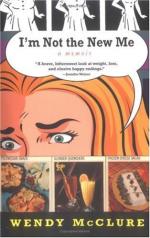“You’ll see,” said the bow plates proudly. “Ready behind there! Here’s the father and mother of waves coming! Sit tight, rivets all!” The great sluicing comber thundered by, but through all the scuffle and confusion the steam could hear the low, quick cries of the iron-work as the various strains took them—cries like these: “Easy now, easy! Now push for all your strength! Hold out! Give a fraction! Hold up! Pull in! Shove crossways! Mind the strain at the ends! Grip now! Bite tight! Let the water get away from under, and there she goes.”
The wave raced off into the darkness shouting, “Not bad that, if it’s your first run!” and the drenched and ducked ship throbbed to the beat of the engines inside her. All three cylinders were wet and white with the salt spray that had come down through the engine-room hatch; there was white salt on the canvas-bound steam pipes, and even the bright work below was speckled and soiled; but the cylinders had learned to make the most of steam that was half water, and were pounding along cheerfully.
“How’s the noblest outcome of human ingenuity hitting it?” said the steam, as he whirled through the engine room.
“Nothing for nothing in the world of woe,” the cylinders answered, as if they had been working for centuries, “and precious little for seventy-five pounds head. We’ve made two knots this last hour and a quarter! Rather humiliating for eight hundred horse-power, isn’t it?”
“Well, it’s better than drifting astern, at any rate. You seem rather less—how shall I put it?—stiff in the back than you were.”
“If you’d been hammered as we’ve been this night, you wouldn’t be stiff—ffreff—ff—either. Theoreti—retti—retti—cally, of course, rigidity is the thing. Purr—purr—practically, there has to be a little give and take. We found that out by working on our sides for five minutes at a stretch—chch—chh. How’s the weather?”
“Sea’s going down fast,” said the steam.
“Good business,” said the high-pressure cylinder. “Whack her up along, boys. They’ve given us five pounds more steam;” and he began humming the first bars of “Said the young Obadiah to the old Obadiah,” which, as you must have noticed, is a pet tune among engines not made for high speed. Racing liners with twin screws sing “The Turkish Patrol” and the overture to the “Bronze Horse” and “Madame Angot,” till something goes wrong, and then they give Gounod’s “Funeral March of a Marionette” with variations.
“You’ll learn a song of your own some fine day,” said the steam, as he flew up the foghorn for one last bellow.
Next day the sky cleared and the sea dropped a little, and the “Dimbula” began to roll from side to side till every inch of iron in her was sick and giddy. But, luckily, they did not all feel ill at the same time; otherwise she would have opened out like a wet paper box. The steam whistled warnings as he went about his business, for it is in this short, quick roll and tumble that follows a heavy sea that most of the accidents happen; because then everything thinks that the worst is over and goes off guard. So he orated and chattered till the beams and frames and floors and stringers and things had learned how to lock down and lock up on one another, and endure this new kind of strain.




